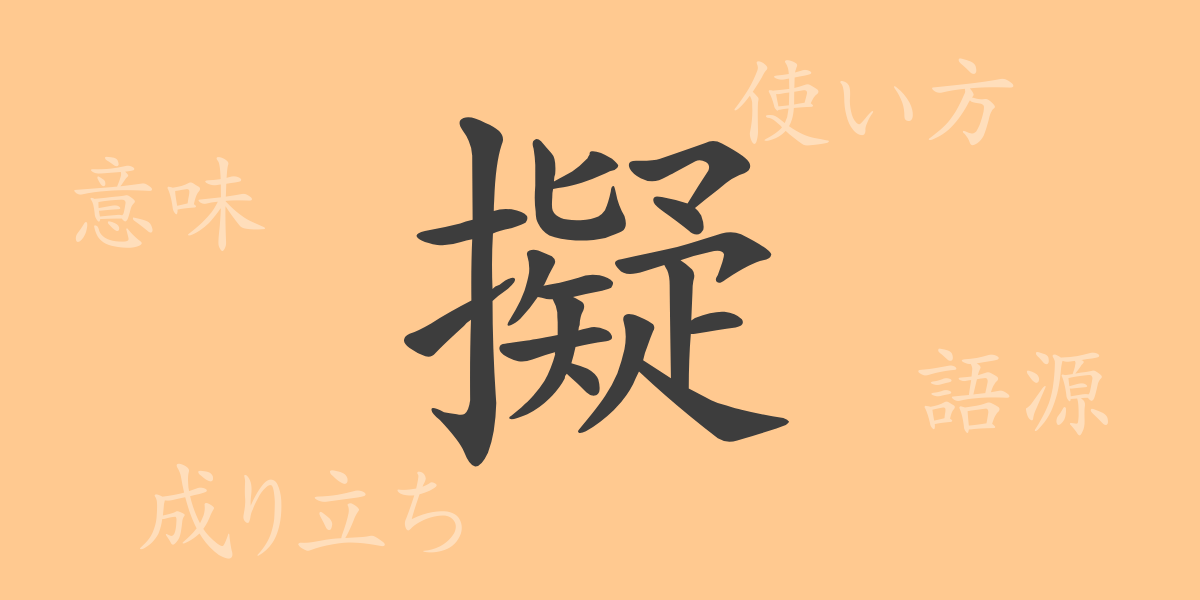The richness of the Japanese language is reflected in its characters. The meanings and history embedded in each kanji character reveal the depth of the language. This time, we spotlight the common-use kanji “擬” (gi), exploring its origins, meanings, usage, and related idioms and proverbs. Through this article, let’s step into the world of “擬” (gi) and rediscover the charm of the Japanese language.
Origin of the Kanji “擬” (語源)
The kanji “擬” (gi) is composed of the radical “手” (て, te), meaning hand, and the phonetic component “疑” (ぎ, gi). This combination gives rise to the meaning “to shape with hands,” leading to concepts such as “to imitate” and “to compare.” In ancient Chinese texts, “擬” (gi) was used to signify imitation and comparison, and this usage has been carried forward to the present day.
Meaning and Usage of “擬” (gi)
The kanji “擬” (gi) means “to imitate,” “to liken,” or “to compare.” Specifically, it is often used when something is made to resemble or is compared to something else. In legal and academic terms, it can also be used in the context of “擬する” (gi suru), meaning “to treat as,” indicating the nuance of handling something as if it were something else.
Reading, Stroke Count, and Radical of “擬” (gi)
Let’s look at the basic information about the kanji “擬” (gi).
- Reading: The on-yomi (Chinese reading) is “ギ” (gi), and the kun-yomi (Japanese readings) are “なら.ぶ” (narabu) and “なら.い” (narai).
- Stroke count: 18 strokes in total.
- Radical: The radical is 手 (てへん, tehen), meaning hand.
Idioms, Proverbs, and Expressions Using “擬” (gi)
What idioms, proverbs, and expressions include the kanji “擬” (gi)? Here are some examples:
- 擬似 (ぎじ, giji) – Refers to something fake or an imitation.
- 擬装 (ぎそう, gisou) – The act of disguising or making something appear different from its true nature.
- 擬態 (ぎたい, gitai) – The phenomenon where organisms resemble other organisms or their environment for protection.
- 擬音 (ぎおん, gion) – Onomatopoeia, representing specific sounds in text.
- 擬人化 (ぎじんか, gijinka) – Anthropomorphism, giving human characteristics to non-human things.
These expressions reflect the meanings of “擬” (gi), such as “to resemble” and “to liken.”
Summary on “擬” (gi)
The kanji “擬” (gi) is used in various fields to signify the act of resembling or likening something to another. From law to literature and everyday conversations, this kanji is deeply rooted in our language. Through this exploration, we hope you understand the rich meanings and uses of “擬” (gi), enhancing your appreciation of the expressive power of Japanese.

























